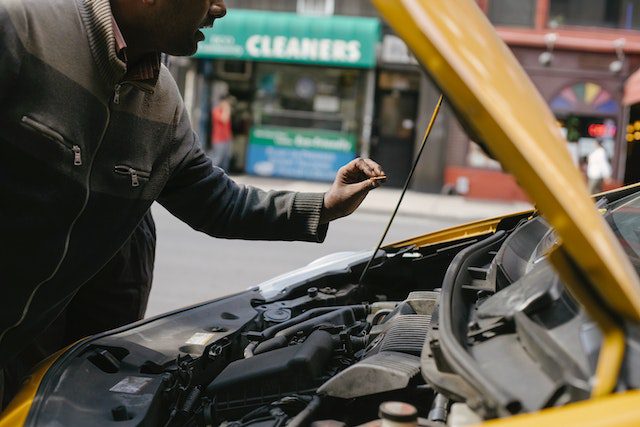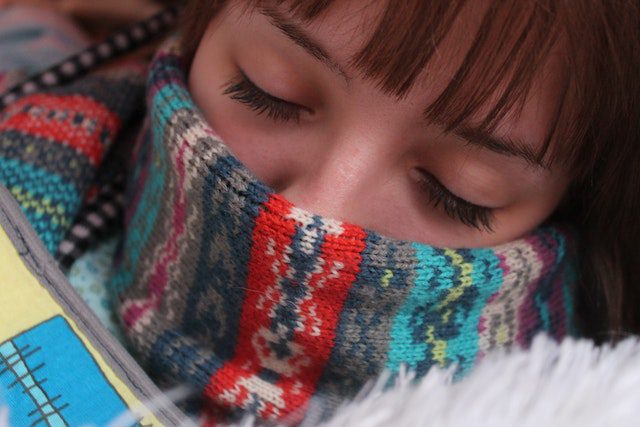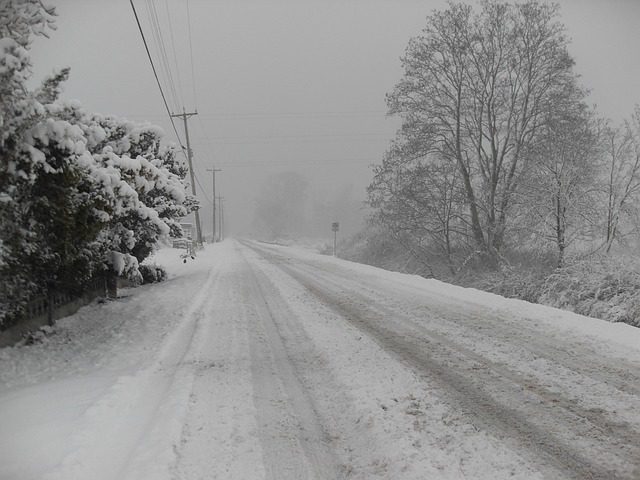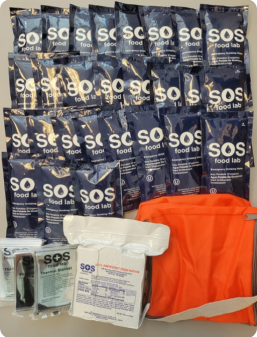Winter is more dangerous than any other time of the year for people in the United States. According to the Environmental Protection Agency (EPA), death rates have been 8-12% higher than in other seasons.
The winter months make driving more dangerous, falls more common, and leave us exposed to respiratory illnesses and extreme temperatures.
How can we stay safe when it’s so cold?
Poor Road Conditions/Car Problems
Snow, sleet, and ice make the roads treacherous during winter.
To prevent winter-related problems, begin by preparing your car. Battery power drops with the temperature, so test your battery. Check the tire pressure, the wiper blades, and the cooling system.

Always keep your gas tank at least half full to prevent your gas line from freezing, and use wiper fluid rated for -30 degrees. Make sure to use winter or all-season tires with deeper tread.
Before you begin driving, make sure that your car is clear of snow and ice so you can see. External camera lenses, mirrors, and automatic sensors need clearing. Remove snow and ice from your car’s windshield, windows, and the top of your vehicle.
Heat your car before driving, but never heat your vehicle inside a garage because that can cause carbon monoxide poisoning.
As you begin driving, know your car’s capabilities. Is it a two-wheel drive or an all-wheel drive? Does it have traction control? Does it have an anti-lock braking system (ABS)?
Never use cruise control when there’s a chance of snow or ice and avoid quick speed changes: accelerate and decelerate slowly. Increase your following distance between cars to eight to ten seconds, and avoid stopping on a hill. If your car skids, steer in the direction of the skid, and you’ll regain traction more quickly and be less likely to slip out of your lane.
Falls
Falls are more common during the winter months, especially among the elderly. It’s important for our health to stay active over winter, but you must take precautions to prevent falling.
Falls are most common when people stray from cleared pathways, are shoveling, or fail to see ice. Broken hips, legs, and wrists are common injuries caused by winter falls.
Wear good shoes with plenty of traction when you leave the house. Focus on where you’re putting your feet and avoid patches of ice.
Hypothermia & Frostbite
Always be prepared for the worst when you leave your home in a winter climate. Have a hat, a scarf to cover your mouth, long sleeves, mittens or thick gloves, several layers of loose clothing, and a coat and boots that are water resistant. If you become trapped outside, these articles of clothing can mean the difference between life and death.

Keep extra sets of clothing and blankets (a thermal or “space blanket” would work wonders) in your car in case your car breaks down or you become stranded in snow or traffic.
Avoid getting wet at all costs, and don’t let alcohol or gasoline get on your skin — they chill the body quickly.
People living where there’s snow and ice are likely to experience power outages. To stay warm, stock up on extra blankets and thick winter coats.
The Flu
According to Right as Rain, the flu season peaks over winter. For most people, the best way to treat and prevent the flu is to stay home, stay hydrated, and wash your hands regularly.
Doctors don’t recommend taking Tamiflu unless you’re immunocompromised because it only shortens your illness by about a day. It’s helpful for those with weakened immune systems, though, because their bodies struggle to fight the flu, which can cause further complications.
Space Heater & Fireplace Fires
We need to stay warm over the winter, but many heating sources are dangerous when not used properly. Space heaters are one of the most common causes of home fires over the winter months.
The CDC says using your stove as a heating source is never safe. Use a fireplace that is up-to-code and have lots of dry firewood or extra gas on hand, depending on your type of fireplace. Ensure your fireplace is properly ventilated to the outside and doesn’t leak.

Kerosene and space heaters are great for producing extra heat but can also be incredibly dangerous. Kerosene heaters aren’t legal in all states, so check before getting one.
Buy a space heater with non-glowing elements and an automatic shut-off switch. Keep them a few feet away from all flammable materials like blankets, curtains, and clothing. Never place your space heater on furniture, and don’t sleep with it running.
Carbon Monoxide Poisoning From Generators
Most generators produce carbon monoxide, which is odorless and fatal. The CDC says never to install a generator inside your home, basement, garage, or near windows. Do not use gas or charcoal grills or camp stoves inside your home, either.
Snowed in Your Home without Power
In the event you may be stuck in a snowstorm at home, and you may not have power, it’s essential you have enough food and water to last you several days. Non-perishables are perfect for this—think canned foods or emergency rations from SOS Food Lab. Here’s a great list of snowstorm prep pantry stables from AllRecipes.com: The Best Foods to Stock in Your Pantry Before a Blizzard Hits.
Conclusion
Every year, over 1,000 people die in the United States from exposure to the cold. We are at the mercy of dangerous snow, ice, and sleet during hazardous road conditions, outdoor activities, and power outages. We’re also more likely to get sick.
But, if you take the proper precautions and are proactive about the winter weather, you can enter spring happy and healthy.




